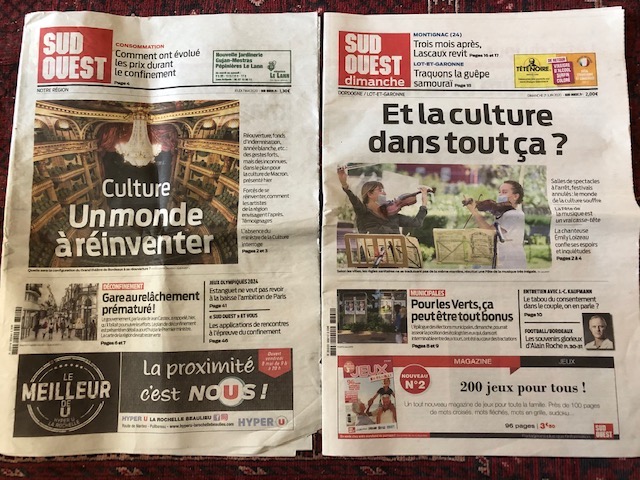By: Frank Cadenhead
This is an update of the projections for the Opera National de Paris. It is probable that the cancellations until the end of January will continue well into 2021 as the virus will not be fully contained until appropriate general protection is gained with the vaccines. The same actions have been, or will be taken by the other 21 opera companies in France.
MESSAGE FROM ALEXANDER NEEF TO PARIS OPERA AUDIENCES
Since establishments receiving audiences must remain closed until the end of January 2021 at the earliest, the Paris Opera is once more compelled to cancel performances scheduled over this period and to review its artistic programme for the first half of the year.
The Palais Garnier remains closed to visits. All performances of Capriccio, which was to have premiered on 26 January, are cancelled, as is the concert by the Academy on 20 January.
At the Opéra Bastille, stage rehearsals for Il Trovatore have been discontinued and we are exploring the possibility of a number of concert version performances as of mid-February. All performances of The Magic Flute have been cancelled, but our platform “l’Opéra chez soi” will be proposing a live stream of the production on Friday 22 January, followed by VOD access.
The geographical dispersion of a number of artistic teams – directors and choreographers – has compromised certain projects and modifications are being made to this season, which has already been severely impacted by the spread of the pandemic.
In consequence, we have had to cancel the ballet Sadeh21 which was to have been created by Ohad Naharin and presented at the Palais Garnier. At the same venue and on the same dates, the Ballet invites you to an evening of dance bringing together three works from the House’s repertoire: In the night by Jerome Robbins, The Vertiginous Thrill of Exactitude by William Forsythe, and Harald Lander’s Études.
The new production of the opera The Queen of Spades, originally to have been directed by Dmitri Tcherniakov, will be performed in Lev Dodin’s staging, under the baton of Oksana Lyniv at the Opéra Bastille from 20 May to 12 June 2021.
The world premiere of Le Soulier de satin, composed and conducted by Marc-André Dalbavie, will be presented at the Palais Garnier from 29 May to 13 June 2021.
In addition to these changes, we are delighted to confirm an additional production: Wolfgang Amadeus Mozart’s final work, La Clemenza di Tito, directed by Willy Decker, at the end of June.
Furthermore we will be welcoming the Teatro Real de Madrid Orchestra under the baton of Ivor Bolton on 21 March, and postponing the recital by Julie Fuchs until 30 March.
All information concerning performances scheduled from February to July 2021 will be available in the near future on our website operadeparis.fr and on our mobile application.
In the coming days, we will be informing spectators with bookings on how to obtain a refund for their tickets. We will also get back to you as soon as we have better visibility regarding performances in the first quarter of 2021.
The motivation of the artists and teams of the Paris Opera remains unaltered, and we are doing our utmost to prepare for a brighter future. We look forward to seeing you again as soon as possible!
Alexander Neef
Managing Director
